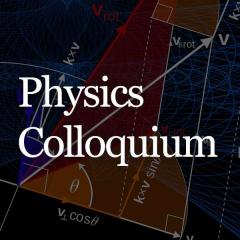Presenter: Dr Ian McCulloch, UQ
Simulating quantum many-body systems with a classical computer is a difficult problem, principally because the number of degrees of freedom required to represent a wave function (measured by the dimension of the associated Hilbert space) is exponentially large. However that doesn’t mean that the information content of a physical state can be arbitrarily big. A striking example is the holographic principle, inspired by black hole thermodynamics: the information content of a black hole is proportional to the surface area of the event horizon, rather than the volume. Similarly, certain types of quantum systems have a very specific spatial dependence of the entanglement, implying that the relevant degrees of freedom are confined to a relatively tiny corner of the Hilbert space.
Tensor Networks provide a framework for representing many-body states that captures these entanglement properties, resulting in an extremely compact representation. This has led to many widely used computational algorithms for simulating ground-state and dynamics of many-body quantum systems. A tensor network can be seen as a form of information compression, and more recently this has led to potential applications in machine learning.
About Physics colloquium
The Physics Colloquium series hosts a range of speakers from Australia and abroad. The series explores a variety of topics and everyone is welcome to come along. The seminars are open so there is no need to register your attendance.
If you would like to sign up for colloquium announcement emails, you can join the mailing list by sending a blank email to:
- For UQ email addresses: physics-colloquium-others-join@lists.science.uq.edu.au
- For non-UQ email addresses: physics-announce-external-join@lists.science.uq.edu.au
(Note: if you receive physics-all emails, you should already receive these and don't need to sign up again).

